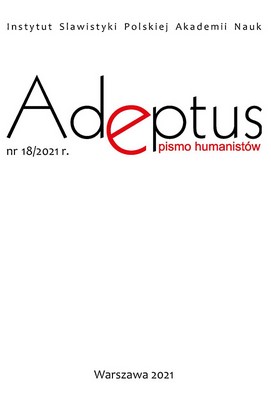Polski patriota z niemieckiej kolonii. Analiza tekstów hagiograficznych o Józefie Bilczewskim
A Polish Patriot from a German Colony: An Analysis of Hagiographic Texts about Józef Bilczewski
Author(s): Tymoteusz KrólSubject(s): Cultural history, Customs / Folklore, Local History / Microhistory, Historical Linguistics, Ethnic Minorities Studies
Published by: Instytut Slawistyki Polskiej Akademii Nauk
Keywords: Wilamowice; Wymysorys language; Józef Bilczewski; fabularisation; folklorisation; hagiography;
Summary/Abstract: The town of Wilamowice was established in the thirteenth century by settlers of Germanic origin who arrived from Western Europe. The Germanic language Wymysorys and other elements of culture they developed are present in Wilamowice until today. The town is the birthplace of Józef Biba, the Archbishop of Lwów (today: Lviv) and a saint of the Catholic Church, born in 1860. The authors of his biographies have not only stressed his virtues and miracles, but also devoted considerable attention to the Polishness of his family home, which, as they write, involved the Polish patriotic attitude of his parents and Polish as his mother tongue. Apart from his family, also the entire Wilamowice was presented as “a nest of Polish patriotism”. Yet, at that time most Vilamovians spoke Wymysorys at home and some of them did not know Polish at all. They had their specific, multidimensional identity, constructed in opposition to Germanness and Polishness. In censuses they declared that their mother tongue and nationality was German. The texts where the authors attempt to prove the Polishness of Bilczewski are an example of Polish nationalist discourse, which considers the values of the dominant group to be “neutral” and “normal”. One case in point are the topoi of “a saint Pole” and “a poor saint”, considered “obvious” by Polish authors. To make them more credible, they supported them with fabularised and folklorised stories, rewritten again and again in new texts they published. They rarely referred to sources, and if they did, it was without adequate critical apparatus. This article is an attempt to present the fabularisation and folklorisation of particular stories, which led to the development of one version shared by the community.
Journal: Adeptus
- Issue Year: 2021
- Issue No: 18
- Page Range: 1-19
- Page Count: 19
- Language: Polish

